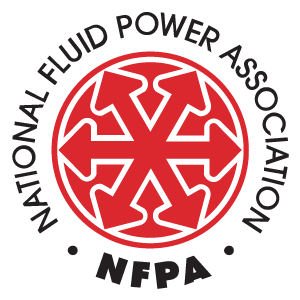Programs like the NFPA Research Supplement Program are made possible in part by the generous support of industry volunteers as well as NFPA Education and Technology Foundation and Pascal Society donors.
 By Eric Lanke
By Eric Lanke
NFPA President/CEO
I recently attended the June 2019 Summit of the Center for Compact and Efficient Fluid Power (CCEFP) at Purdue University. This was the second of two meetings in our last fiscal year where the fluid power research projects supported by our new NFPA Research Supplement Program were presented.
In our efforts to increase the number of university students educated in fluid power, the NFPA Education and Technology Foundation provided ten $10,000 research supplements to ten academic faculty members working on fluid power research at six universities. This helps to engage current and build the careers of future university faculty who are and will be in a position to teach fluid power to undergraduate engineers on their campuses. The research supplements provide travel support so that each faculty member and one of their graduate students can attend to present their research at designated industry conferences and research summits like the one hosted by the CCEFP.
One such faculty member is Professor Tequila Harris of the Georgia Institute of Technology, whose graduate student, Ara Parsekian, presented on their project, “Science of Pattern Coating onto Heterogeneous Surfaces Using a Hybrid Tool,” at the CCEFP Summit. The goal here is to develop and implement a slot coating-inspired approach for heterogeneous micro-scale pattern features, an approach that, if successful, could be applied to help make fluid power components with ultra-low friction, high wear resistance, and superior lubricity. Working with funding provided by the National Science Foundation, Harris and her team have been able to successfully address numerous de-wetting issues by putting down two substances. This technique also helps refine the placement of the material, controlling feature size by varying the ratio and flow rate of the non-functional material paired with the functional one. The team is successfully putting down features in the 50-100 micron range.
Collectively, the research projects supported by NFPA Research Supplements represent more than $4.9 million in funding from a variety of organizations, including the U.S. Department of Energy, the National Science Foundation, and the Center for Compact and Efficient Fluid Power (CCEFP). They are an excellent sample of the growing body of fluid power research being funded by the federal government and other research organizations.
Like this post? Share it!
Recent Posts
Update to Regional Demand Estimates Report Now Available
The U.S. Fluid Power Regional Demand Estimates Report has been updated with 2023 estimates and is now available for download. This Excel-based report is prepared for NFPA by Oxford Economics and profiles the geographic distribution of fluid power products to end-use industries by state, including fluid power sales dollars, fluid power sales percentage, and number of…
Hear from an NCAT Student Engaged in NFPA Workforce Programs
We’re excited to share a new testimonial video from David Castro Lastor, a junior mechanical engineering student at North Carolina Agricultural and Technical State University and president of the university’s Fluid Power Club. In his video, David shares how participating in NFPA programs has shaped his academic and personal growth. Through his leadership in the…
New Episode of Fluid Power Forum: Advanced Modeling Techniques and Performance Comparisons of Electrohydraulic Systems
Today, our guest is Bruno Dupuis. Bruno is a Corporate Accounts Manager at Famic Technologies Inc., the company behind the development of Automation Studio™, a circuit design and simulation software for fluid power, electrical, robotics, process control and automation projects. He presented at NFPA’s Hydraulics Conference co-located at the 2024 iVT EXPO back in August.…



